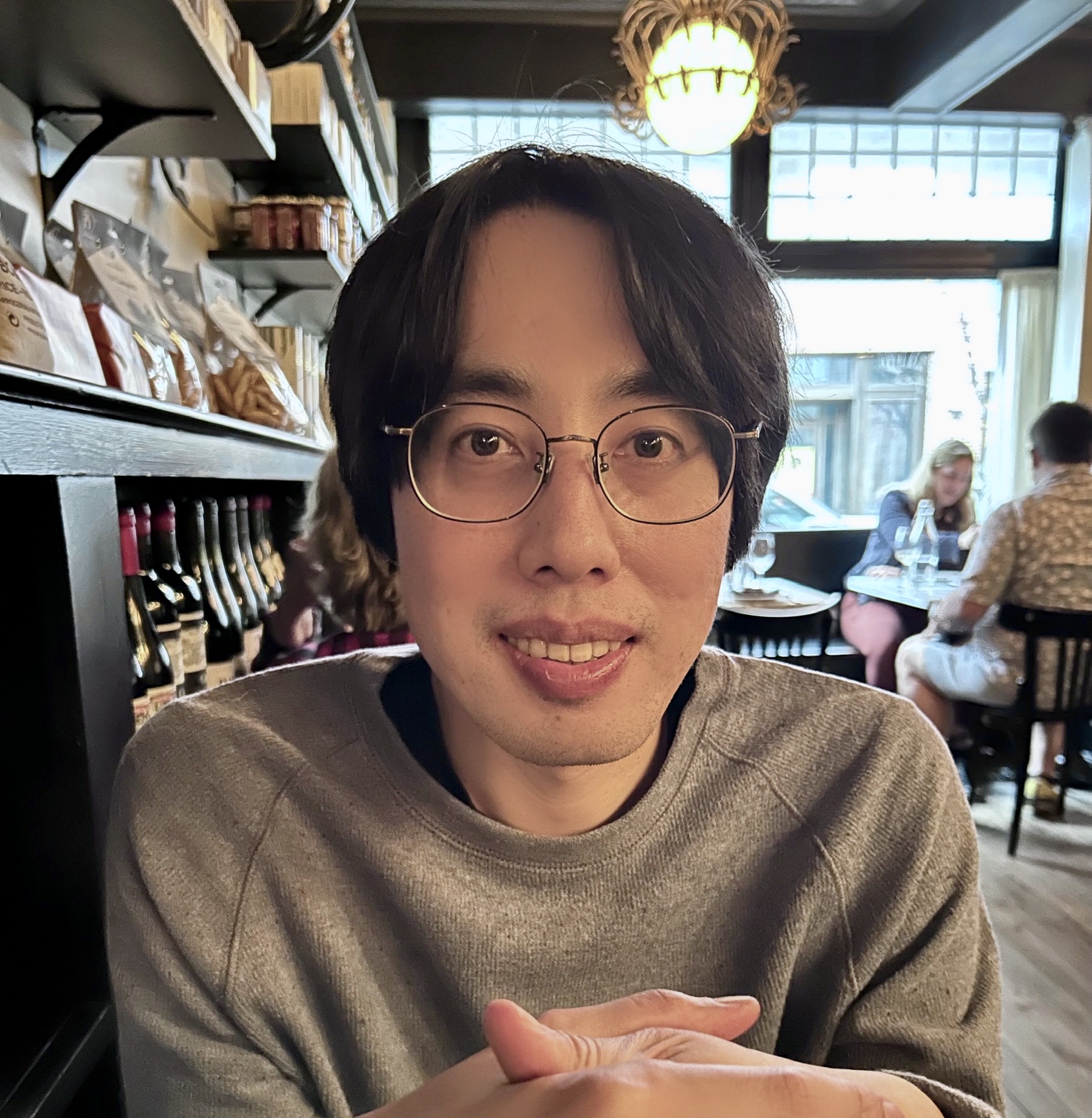“I don’t alternate between philosophy and perception. Instead, I focus on perception alone while creating drama within it . . .”
My poems published in New England Review Vol. 45, No. 3 are excerpted from a sequence of prose poems called “Chronicle of Drifting,” which is also the title of my first full-length poetry collection, forthcoming from Copper Canyon Press in April 2025.
I started writing the sequence almost a year after the pandemic began. During this time, I lived alone in a tiny apartment in Tokyo, taught classes online, and kept my distance from all things human. At night, when it was less crowded, I would take walks around my neighborhood to stay fit. The observations I made during these walks provided material for “Chronicle of Drifting.” Working on the sequence brought me a lot of pleasure, as it helped me feel less trapped in everyday life. Although I couldn’t roam freely in the real world, I could walk through the crowds, travel, and meet people inside my poems.
There are two major literary influences on my work. The sequence is partly inspired by the tradition of the flâneur, which includes figures like Baudelaire, T. S. Eliot, Fernando Pessoa, and Frank O’Hara. My poems are more in the lighthearted spirit of O’Hara, whose Lunch Poems conveys the excitement of walking through bustling New York City. Another influence on “Chronicle of Drifting” is Lyn Hejinian’s My Life. In this classic work of prose poetry, Hejinian intersperses philosophical reflections with the details of everyday life, like finding a spiderweb inside a soft-serve cone. Such descriptions reaffirmed for me how exciting and pleasurable everyday life still could be.
My approach is slightly different from Hejinian’s in that I don’t alternate between philosophy and perception. Instead, I focus on perception alone while creating drama within it. When I was in my MFA program, I took a fiction workshop with Paul Harding, who emphasized that perception in itself is often enough to build a story. This idea resonated with me especially during the pandemic: without the usual human drama, as everyone stayed home, shifts in perception felt more dramatic and surprising than ever. For instance, in the excerpt I write, “Caught in an evening shower, I swing my hair to imitate a wet willow.” This transformation isn’t magical realism but is grounded in real life: after the rain, my hair resembles a wet willow. Simple perception shifts like this—seeing A as B—lifted the weight of pandemic life, transporting me to a life of imagination.
Yuki Tanaka was born and raised in Yamaguchi, Japan. His poems have appeared in the Nation, the New Republic, the Paris Review, POETRY, and elsewhere. His first full-length collection, Chronicle of Drifting, will be published by Copper Canyon Press. He has also co-translated, with Mary Jo Bang, A Kiss for the Absolute: Selected Poems of Shuzo Takiguchi—forthcoming from Princeton University Press in 2024. He lives in Tokyo and teaches at Hosei University.
Photo of Yuki Tanaka courtesy of the author.
